Countries' experiences in dealing with the outbreak of Coronavirus
With the spread of the coronavirus and the resulting crises, there have been several challenges facing societies and serious consequences for industries and economic actors. All governments are looking for ways to reduce the negative effects of this crisis and have come up with new technological solutions to combat the spread of the virus. Communication and information technology, automation and robots, artificial intelligence, monitoring and control, and any strategy that leads to an increase in public health around the world can be effective in controlling the disease and reducing its negative effects.
The report examines the experiences of other countries to increase public health in the world using new technologies and innovations to reduce the negative consequences of coronary heart disease. The findings are as follows:
1. Sharing knowledge through e-health databases and other digital interaction ports; creating a digital framework to support the free flow of data and providing a reliable environment for digital exchanges is essential to sharing global experiences with the corona virus; It is becoming such a center.
2. Appropriate support for the intellectual property of the development of technology; the use of new technologies will accelerate the diagnostic methods of the coronavirus, and the inventors of these innovations are entitled to the protection of intellectual property, this issue is under consideration in the World Health Association.
3. The use of information technology to reduce the time it takes for health products to comply with international standards; although compliance with international standards for pharmaceuticals and medical equipment is a necessity, unreasonable oversight is a limiting factor. It is necessary to reduce internal regulations that do not comply with international standards and to improve complex and lengthy methods by using information technology and automatic registration of medical equipment standards. Countries such as China, Germany, Belgium, and the European Union in general have had this technology in their customs for clearance for many years and use it more vigorously in the event of a corona outbreak.
4. Developing commercial and technological equipment to reduce the cost of transporting public health products across borders (logistics improvement); China and the European Union have set up "green lines" at customs to provide quick inspections and release health-related products. Delay in importing these important materials to be prevented.
5 - Getting lower tariffs than drugs, medical devices and other medical equipment; Tariff rates for pharmaceuticals and medical equipment are relatively low in most countries, but disinfectants and other related products needed to fight the disease are still common in many countries. Tariffs and unauthorized barriers are facing. Colombia and Panama have cut tariffs on these items.
6. Permission for doctors and nurses to enter and leave borders; Italy has issued special visas, work permits and flexible regulations for doctors, nurses and health professionals. This is especially true for low-income and poor countries.
7. Implementation of export restrictions for key medical equipment by countries; more than 24 countries have imposed restrictions on the export of medical equipment such as face masks and medicines and their constituent materials (including the European Union and India). According to the World Health Organization, in order to meet the growing global demand for personal protective equipment (face masks, glasses, etc.), an increase in production of 40 percent is needed; therefore, support incentives to stimulate global production and accelerate distribution in each country and government.
8. Reduce efforts to conclude trade agreements with a focus on health products and medical supplies; reduce the need for such agreements to address trade restrictions (including tariffs and non-tariff barriers) to medical supplies and health-related products. In this context, the WTO Agreement on Trade in Medicinal Products concluded between 12 countries in 1994 can be used.


